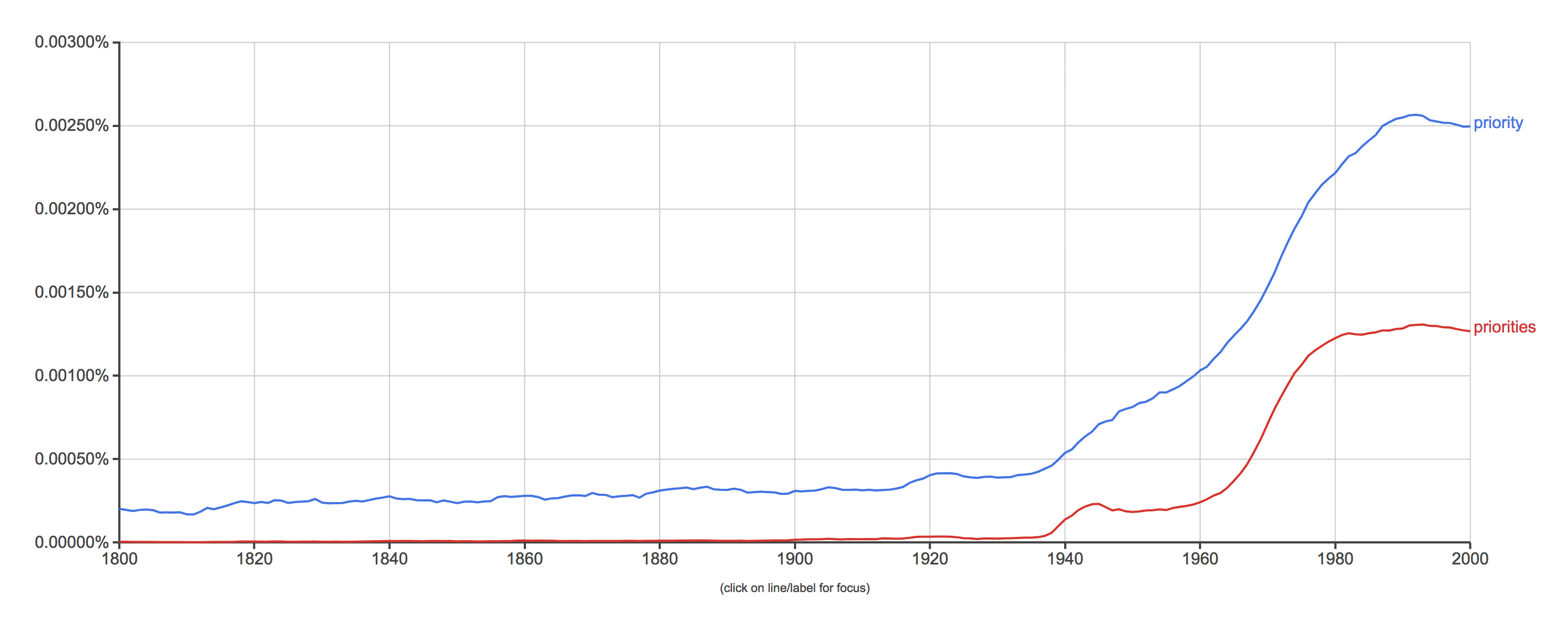Especially when you have a lot to do

A friend of mine, Lachlan Campbell, recently asked me how I focus, especially when there’s so much going on. It’s a great question and I’m sure very apropos to Lachlan’s life. They’re a student, budding entrepreneur, and just a busy busy person.
One thing I know is that the most common advice is to “turn off distractions”. There’s software to measure your time. Uninstall apps. Hack your computer’s DNS to make sure when you visit a site like Hacker News it ends up doing nothing. These all have a valid place.
But I think there’s a meta problem that needs to be solved first.
When I was a sophomore in high school I was insanely stressed out. As a freshman, I had the number one rank so I felt a lot of pressure to keep my grades sky high. I was a decent volleyball player, practiced all year long. I was in Spanish club. Debate. Chess. Math team. And plenty more.
My grades started to slip. It was all this effort applied to all these places. And school was just getting harder. I found myself in an AP Art History class with two teachers I didn’t get along with and my grade went with it.
But my number one rank was incredibly important to me. What the hell was I going to do?
Google has a fun project that doesn’t get much attention from people. The Books Ngram Viewer.
Ngram is a fancy term that simply means: a phrase of words whose length is equal to N. For example, trigrams are three word phrases.
Google’s Ngram Viewer looks at all the books Google has slurped into their search engines from 1500 to 2008 and gives you the ability to find the frequency of whatever word or phrase you’re looking for.
For example,

The word “camels” was much more popular in the 1800s than it is today.
One of the more interesting finds I’ve seen in the last few years was about the words priority vs priorities:

Up until 1940 no one ever used the word priorities. If you have “priorities” how many do you have. What’s the magic number? Three? Five? A dozen? The plural doesn’t make sense.
Priority. There’s a single thing that’s most important in the things you do. Sure you can do more than one thing. But those other things aren’t as important as your priority.
Eventually I understood what I was doing wrong in school. I realized “grades” weren’t what was most important to me, but getting a great education was.
Things started figuring themselves out. I didn’t obsess about volleyball as much; I knew I wasn’t going to be playing in college anyways. I should just enjoy the game.
I dropped more things.
And I also started turning in my assignments late or sometimes not at all. If I didn’t feel like the assignment was furthering my understanding of a subject and I was pressed for time, I just wouldn’t turn it in. If time was still in issue, but I really needed the assignment to understand the subject, I’d turn it in late.
I got points taken away for sure. But a funny thing happened, my grades overall started to improve. I mastered understanding things and could do better on tests. I got more sleep. I felt better about school and my life. I still graduated in the top 10 of my class, but it didn’t really matter anymore. I had stopped caring about all the stuff that used to overwhelm me.
That’s really the answer to learning to focus on ALL OF THESE THINGS.
Getting clear on your priority.
Now, Lachlan isn’t me, so I’m not going to preach they or anyone take the same steps as I took in high school. But, I do think more students should prioritize education over grades. What you learn is far more important than the artificial relic of grades. At least for many of the employers I know these days. Lachlan was an intern here. I have no idea what their grade point average was.
Two More Bonus Tips
If You’re Young, Go Wide, Not Deep
Another thing to remember about being young is that you have a lot of time to rack up those accomplishments. So instead of spending time trying to go super deep into any one thing to become THE BEST, I think more young people should focus on going as wide as possible. Experiencing everything. Take classes in everything. Find jobs that give you access to everything.
I rag on working at Accenture when I got out of college. Real corporatey-corporate kind of place. But it was a fantastic experience for a new college grad. Gave me experiences in so many different places. I was working for the government, telecom, banks, payroll departments, etc. all in just a handful of years. I was working with the tech of CRMs, email marketing, mainframes, web apps, Java, Visual Basic, etc. etc. When I moved from Accenture my next job was drastically more deep. Same tech, same project, for years.
So be careful diving in too deep too fast. Enjoy the time to do a lot of things at first to see what you really want to do.
Most Of It Doesn’t Matter
Everyone by now is usually familiar with the Pareto principle.
Named after economist Vilfredo Pareto, that specifies an unequal relationship between inputs and outputs. The principle states that 20% of the invested input is responsible for 80% of the results obtained.
The 80/20 rule. But of course that’s applied over a lot of different systems.
I think it’s often maybe even closer to the 90/10 rule for most of life’s and business choices.
I look at Highrise. So many things we work on, and experiment with, just don’t move the needle. We try them of course, because we’d like to turn over a new rock and find treasure. But it’s a lot of miss miss miss miss miss miss miss miss miss win.
So I know when you’re in the weeds with all these things, it sure feels like it’s all important. But from a different perspective, you’ll probably find, most of it really didn’t even matter.
I hope that helps. I know the stress being overwhelmed can bring. If I can be of any help to anyone, please don’t hesitate to ask. You can always reach me on Twitter or email. Or send me a video!
P.S. You should follow me on YouTube: youtube.com/nathankontny where I share more about how we run our business, do product design, market ourselves, and just get through life. And if you need a zero-learning-curve system to track leads and manage follow-ups, try Highrise.


